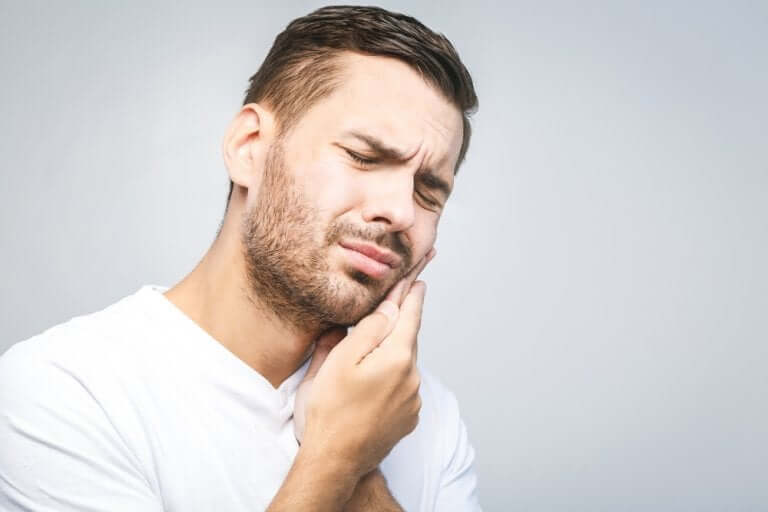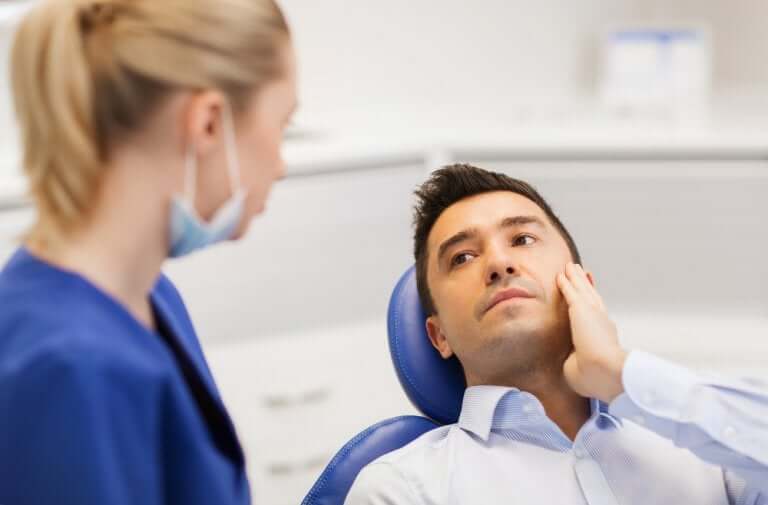Care After Getting Your Wisdom Teeth Pulled

Many people hate going to the dentist because they’re afraid of any painful procedures. Getting your wisdom teeth pulled is usually one of the sources of fear, since sometimes this can be very painful.
Wisdom teeth are teeth that appear between 17 and 25 years old. However, in some people, they never appear. They are also called third molars and occupy the last spot for teeth.
The truth is, sometimes you might not notice when they come up. However, sometimes they cause certain symptoms and it’s necessary to remove them. For example, when they press on the other teeth, they create tension in your mouth.
In this article, we’ll explain everything you need to know about getting your wisdom teeth pulled. We’ll also discuss the care after the operation in order to avoid complications.
Why do you need to get your wisdom teeth pulled?
As we already mentioned, wisdom teeth appear in young adulthood when the other teeth are already fully formed. This means that many people don’t have enough space in their mouths for these teeth to come up and develop normally.
Therefore, some wisdom teeth can grow by pressing on the tooth next to it. They may even grow towards the back of the mouth or even not be able to pass through the jaw bone.
This can cause pain and complications. The gums can become infected, the adjacent teeth can be damaged, and the entire area often becomes inflamed.
Also, people who have small mouths also notice that all of their teeth change. In fact, the teeth can end up shifting because of the pressure from the wisdom teeth. Even if they seem to come up fine at first, over time problems can appear.
Being at the back of the mouth, it’s very common for these teeth to have cavities or build up food behind them. All of these aspects make it better to remove them than to maintain them.

You might like: All About Endodontics in Dentistry
Care after having your wisdom teeth pulled
Wisdom teeth can cause jaw pain or even headaches. They can also cause bad breath and inflammation of the gums. The extraction happens through outpatient surgery. Usually, it lasts around an hour and a half, and dentists use local anesthesia.
Right after getting your wisdom teeth pulled, dentists recommend certain steps to make the recovery go smoothly. First, it’s important to use painkillers. In fact, you can use them to relieve pain or prevent pain from appearing.
To do that, you can take non-steroidal anti-inflammatory drugs (NSAIDs), for example, paracetamol and ibuprofen. Also, you can place a cold compress on your cheek to reduce inflammation. Other tips are:
- Don’t spit right after the operation. That way, you can prevent the wound from bleeding.
- It’s important to take the day off. Also, don’t do strenuous activities.
- When choosing meals, we recommend soft foods for the first 24 hours. It’s also essential to drink plenty of water and avoid hot drinks, alcohol and coffee.
- You shouldn’t smoke or chew tobacco, as they can alter the healing process.

However, soon after, you need to thoroughly clean your mouth, taking care of the wound. Try gently brushing the area with a toothbrush. Some dentists recommend rinsing with salt water to improve healing.
You might be interested: A Guide to Using Mouthwash
In conclusion
Most people don’t want to get their wisdom teeth pulled, since it can be painful or uncomfortable. However, if you follow your dentist’s advice properly and go to checkups frequently, there shouldn’t be any complications.
Not everybody has wisdom teeth, nor will everyone have painful symptoms. The goal is to always check in with your dentist to determine the state of your teeth.
All cited sources were thoroughly reviewed by our team to ensure their quality, reliability, currency, and validity. The bibliography of this article was considered reliable and of academic or scientific accuracy.
- Extracción de las muelas del juicio y cuidados posteriores – Bupa. (n.d.). Retrieved January 26, 2020, from https://www.bupasalud.com/salud/extraccion-muelas-jucio
- Recuperación tras la extracción de las muelas del juicio. (n.d.). Retrieved January 26, 2020, from https://www.sanitas.es/sanitas/seguros/es/particulares/biblioteca-de-salud/salud-dental/muelas-juicio-recuperacion.html
- Extracción de cordales | Extracción cordal | MaxiloDexeus. (n.d.). Retrieved January 26, 2020, from https://maxilodexeus.com/cirugia-maxilofacial/extraccion-cordales/?gclid=CjwKCAiA66_xBRBhEiwAhrMuLfiODP5mE06_r5QY02_x3VioNOvS7klC_qzuDns0KiyPwcNzFOtkIhoC20IQAvD_BwE
This text is provided for informational purposes only and does not replace consultation with a professional. If in doubt, consult your specialist.








